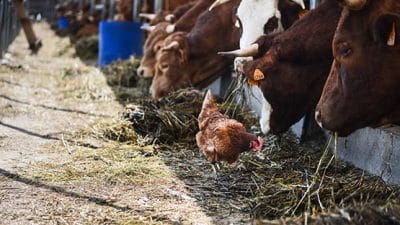
“Every student in Virginia deserves the opportunity to get a high-quality education at an affordable price. Virginia’s higher education institutions are among the best in the nation. However, we must increase access and ensure that we are adequately preparing our students for the jobs of tomorrow when they graduate,” said McDonnell, talking up on Monday his Preparing for the Top Jobs of the 21st Century legislative platform, which will place a greater emphasis on science, technology, engineering and math.
The reform “will help us attract new employers to Virginia, and better prepare our citizens to fill the jobs that already exist in the state today,” McDonnell said.
Spotsylvania Democratic Sen. Edd Houck is part of the bipartisan team working with McDonnell on the effort. Houck said Virginia’s higher-ed system is “at a crossroads.”
“There is much about our higher education system for which Virginians are justifiably proud,” Houck said. “We are all familiar with the steady string of national surveys that rank our colleges and universities among the very best in the nation. Other surveys highlight the exceptional value that our colleges and universities provide the Commonwealth and its students. At the same time, though, issues of affordability and accessibility are making the dream of higher education more and more difficult for low and middle-income Virginia families. Our system of higher education is at a crossroads. The time is now – right now – to take advantage of this singular opportunity for meaningful and comprehensive reform.”
Highlights of the reform package:
Economic opportunity and impact
Provides a roadmap for achieving an additional 100,000 undergraduate (associate and bachelor’s) degrees for Virginians over the next 15 years by (1) increasing enrollment of Virginia students, (2) improving graduation and retention rates, and (3) assisting students with some college credit to complete degrees through public and private higher education institutions in Virginia.
Focuses additional degree attainment in high-demand, high-income fields (e.g., STEM, healthcare) that are keys to top jobs in 21st Century economy. Provides for creation of a not-for-profit STEM public-private partnership to fully engage the business and professional communities in the strategic direction and promotion of STEM initiatives. Incentivizes public-private collaboration on STEM-related and other commercially viable research.
Higher education’s return on investment is second to none. The Weldon Cooper Center’s study for the Virginia Business Higher Education Council shows that every 1 dollar currently invested in Virginia’s public higher ed system yields 13 dollars in increased economic output. College graduates on average earn twice as much as those without college degrees.
Reform-based investment
Provides for sustained reform-based investment and innovation in delivery of higher education services, as well as extending college degree opportunities to more citizens in creative, cost-effective ways. Institutions’ six- year plans will address strategies and use of incentives for year-round use of physical facilities and instructional resources, technology-enhanced instruction and resource-sharing across the higher ed system, innovative and economical degree paths, ongoing restructuring and managerial reforms
Reverses the dramatic funding reduction cycle to higher education through a new comprehensive funding model framework with four components: basic operations and instruction; enrollment growth funding; need-based financial aid (for low- and middle-income families); and financial incentives to promote innovation and increased economic impact.
Establishes a comprehensive and streamlined six-year planning process to aid college, university, and executive and legislative branch officials in implementing the long-term policies of the “Top Jobs” Act and in improving coordination among institutions and the Commonwealth.
Creates a collaborative Higher Education Advisory Committee consisting of executive and legislative branch representatives and representatives of higher education institutions to develop performance criteria for incentives, institution-specific base funding policies, economic opportunity metrics for degree programs, opportunities for additional, cost-saving managerial autonomy and efficiency reforms, and other key policies.
Affordable access
Provides enrollment-based funding to increase access for qualified Virginia students at public and private colleges and universities.
Enhances long-term affordability through a three-prong strategy: (1) puts in place a model for stable and predictable state funding support, relieving the upward pressure on tuition over time as state funding rebounds; (2) provides for development of need-based financial aid options aimed at middle-income as well as low-income families; (3) creates a Revenue Stabilization Fund (higher education rainy-day fund) to help buffer higher education funding against future cuts that produce sudden and sharp tuition spikes during economic downturns.
Story by Chris Graham. Chris can be reached at [email protected].










